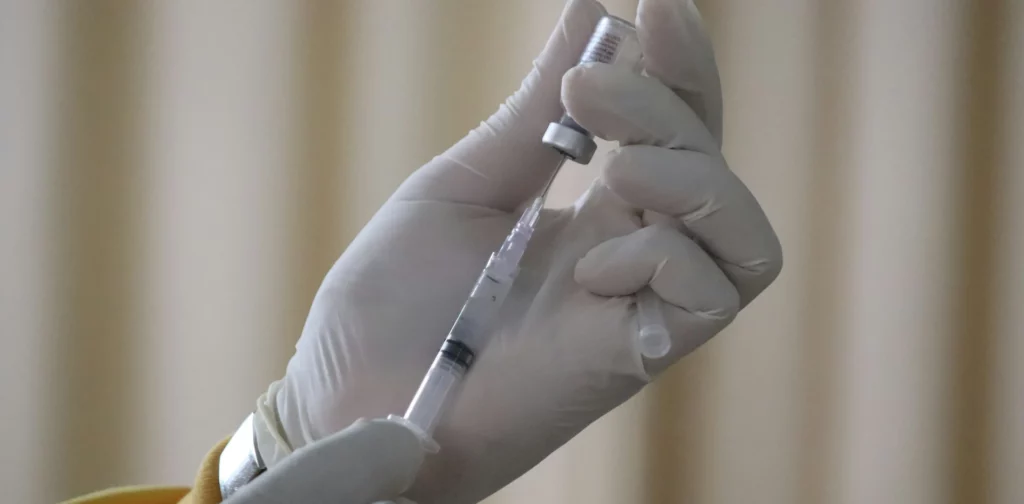Life-Saving Access to Rabies Vaccines Needed

Photo: Mufid Majnun on Unsplash
In sustainable development, efforts to ensure equitable and universal access to healthcare are one of the top priorities. However, to date, there are still gaps in the sector for underserved regions and marginalized communities. For instance, many rural and poor communities lack access to vaccines for life-threatening diseases like rabies. Efforts to provide rabies vaccines worldwide are underway.
What Is Rabies?
Rabies is a zoonotic disease caused by a virus that is transmitted through contact with infected mammals, such as dogs, cats, livestock, and wildlife. The virus is usually spread to humans through saliva, most commonly via a bite.
The disease affects the central nervous system, causing fever, pain, or tingling sensations. Rabies also causes difficulty swallowing due to hydrophobia or aerophobia, where infected individuals experience throat spasms when drinking or breathing. Currently, there are no diagnostic tools to detect rabies before typical symptoms begin. Once symptoms appear, the chances of survival are almost zero.
Almost all cases of rabies infections are caused by human interaction with infected dogs. Most cases occur in Africa and Asia, where rabies infected dogs are often poorly controlled. Furthermore, the risk is higher in children as they are more likely to be bitten, and incidents often go unreported.
Poor, Rural Communities and Rabies Vaccines
Rabies may disproportionately affect remote, poor, and rural communities where there are limited to no control programs and access to the vaccines. Even though effective vaccines and treatments exist, they can be too expensive or hard to get due to ‘limited stock’. For instance, the average cost of rabies treatment after exposure was $108, not including travel expenses and lost wages.
In this case, proper funding combined with a robust framework would help countries secure enough stock to serve their populations. Among ongoing efforts is an initiative by Gavi, the Vaccine Alliance, which supports countries in ensuring easier access to post-exposure prophylaxis (PEP) rabies vaccines.
The initiative offers funding for vaccine supplies to countries that meet the guidelines and submit applications. Each year, there will be three funding application periods. Gavi expects that if governments provide rabies vaccines, they will be much more affordable compared to when provided by the private sector only. This initiative is part of the Zero by 30 campaign, which aims to eliminate deaths from dog-mediated rabies.
One Health for All
Ensuring fair access to healthcare is crucial, especially in rural, poor, and marginalized communities where preventable and treatable diseases can be deadly. Inadequate healthcare facilities, resources, and information make them more vulnerable to illnesses. Therefore, improving funding mechanisms and supportive policy in the sector would hopefully advance the global progress toward universal healthcare.
Furthermore, the healths of people, animals, and the environment are interconnected. Sustainable development issues like climate change, animal welfare, biodiversity, food & nutrition, health, and poverty are all linked. So, multi-sectoral and multi-stakeholder strategies are key to successfully implement a holistic approach to health and wellbeing with no one left behind.

Co-create positive impact for people and the planet.
Amidst today’s increasingly complex global challenges, equipping yourself, team, and communities with interdisciplinary and cross-sectoral insights on sustainability-related issues and sustainable development is no longer optional — it is a strategic necessity to stay ahead and stay relevant.


 Reframing Governance in the Era of Water Bankruptcy
Reframing Governance in the Era of Water Bankruptcy  Strengthening Resilience amid Growing Dependence on Space Infrastructure
Strengthening Resilience amid Growing Dependence on Space Infrastructure  Indian Gig Workers Push Back Against 10-Minute Delivery Service Strain
Indian Gig Workers Push Back Against 10-Minute Delivery Service Strain  Call for Governance: Grassroots Initiatives Look to Scale Efforts to Conserve Depleting Groundwater
Call for Governance: Grassroots Initiatives Look to Scale Efforts to Conserve Depleting Groundwater  Integrating Environment, Climate Change, and Sustainability Issues into Education Systems
Integrating Environment, Climate Change, and Sustainability Issues into Education Systems  Finally Enforced: Understanding the UN High Seas Treaty
Finally Enforced: Understanding the UN High Seas Treaty